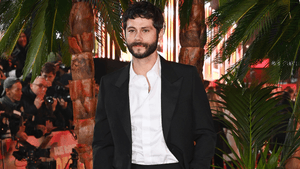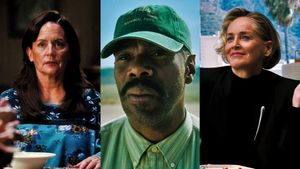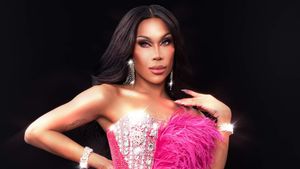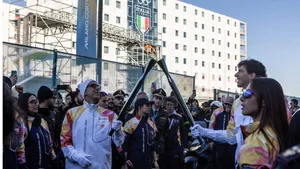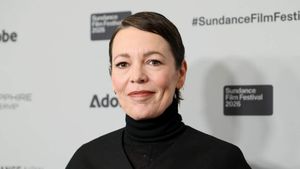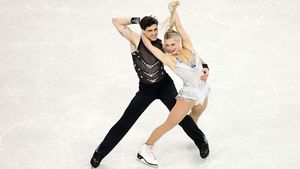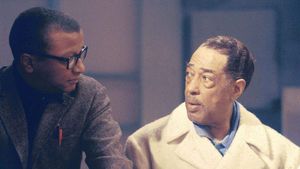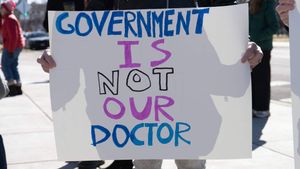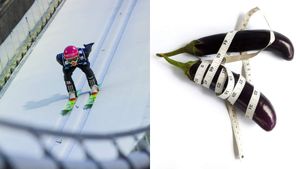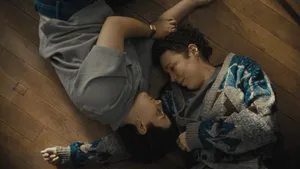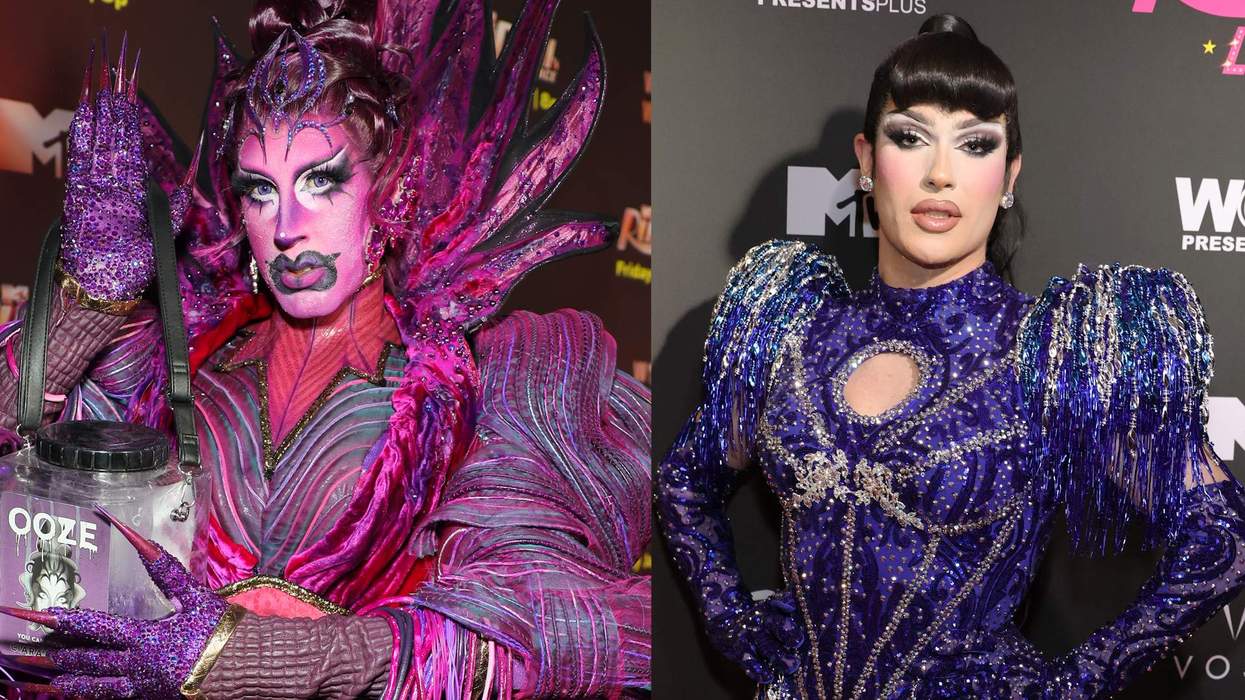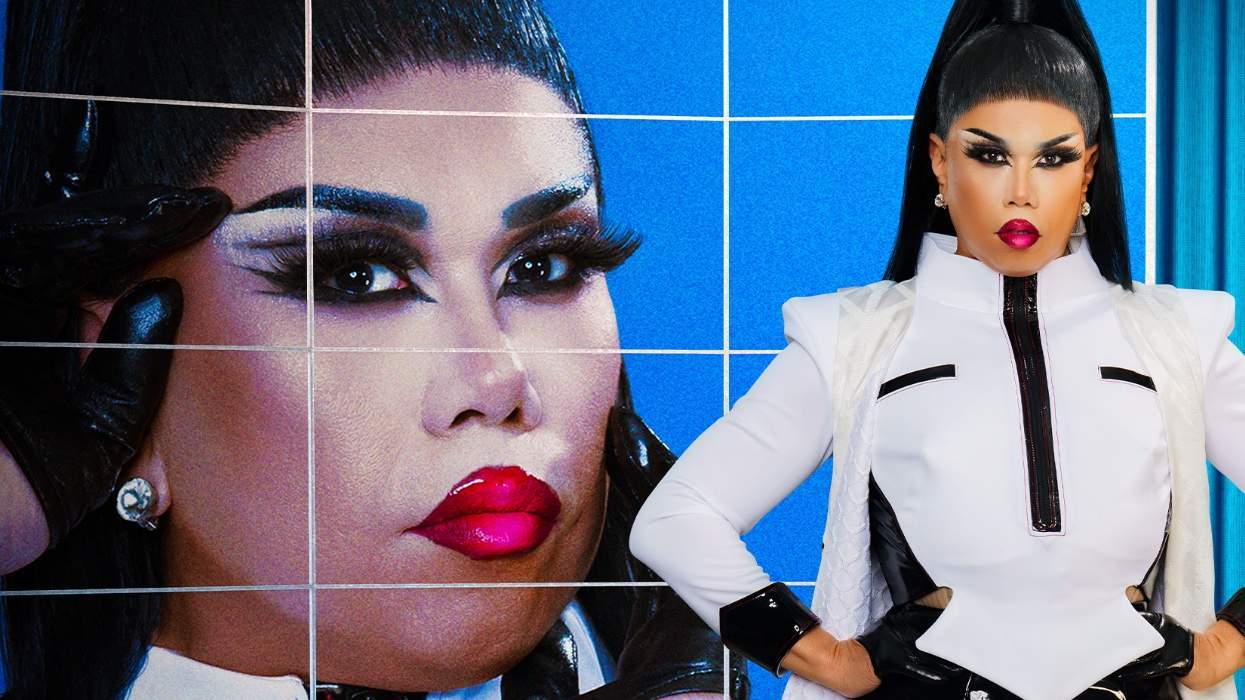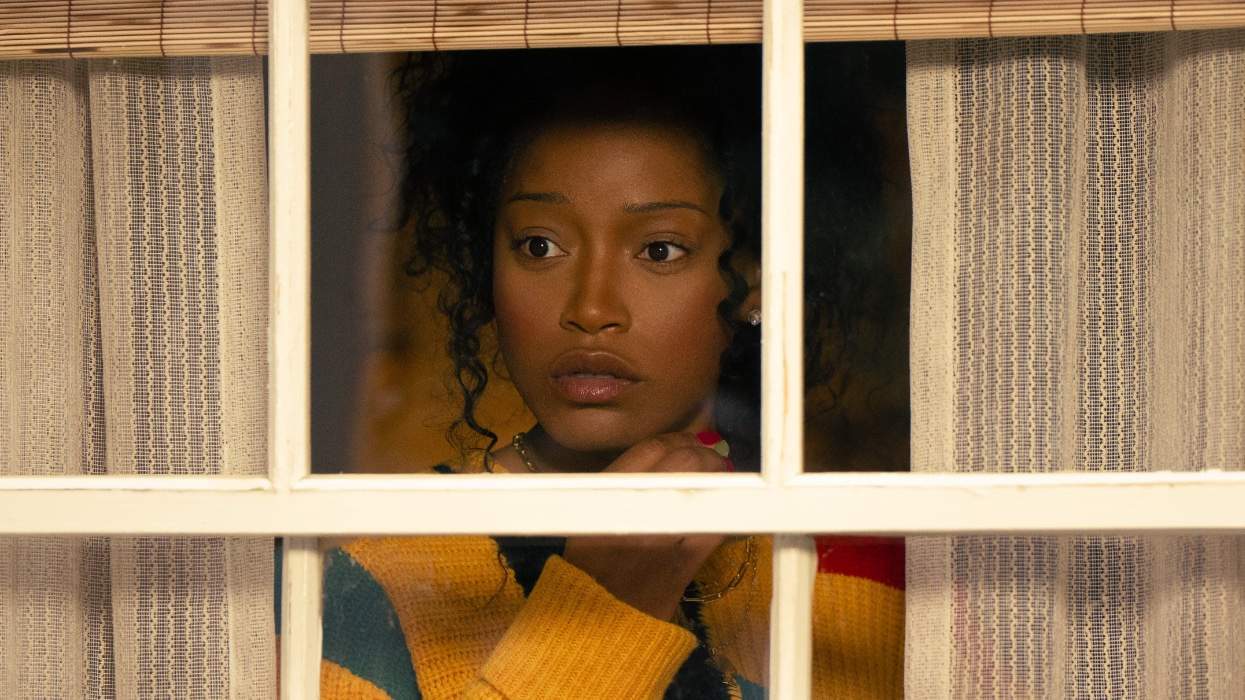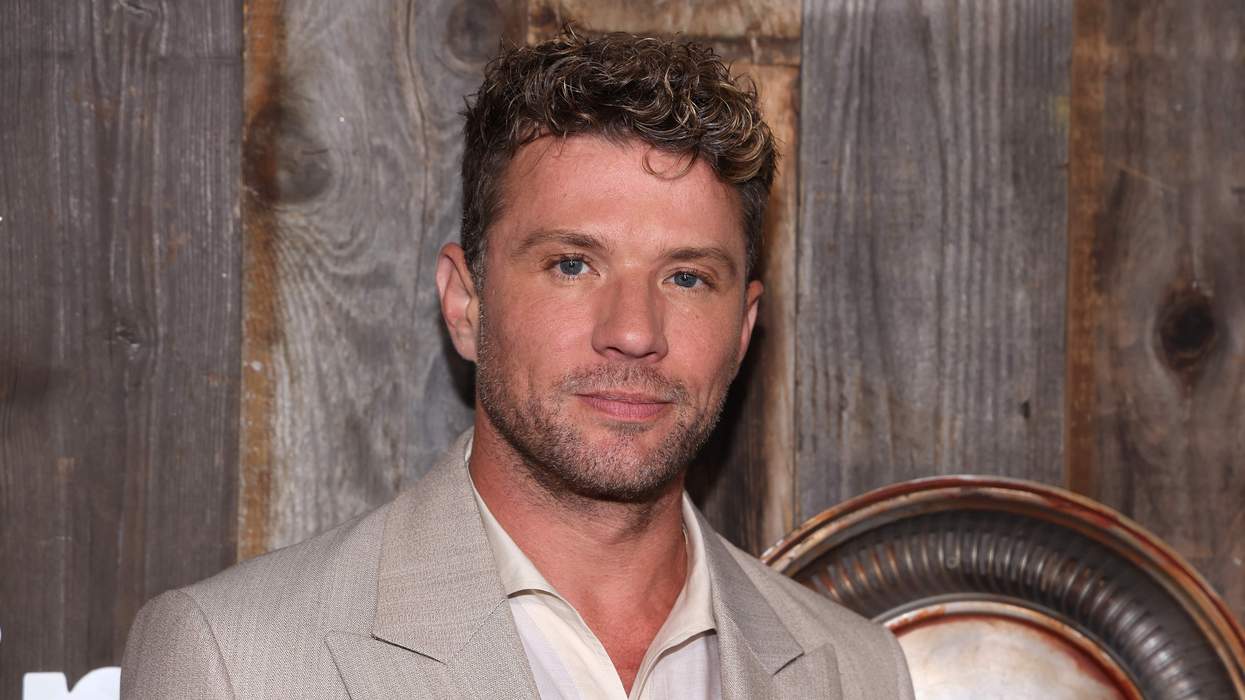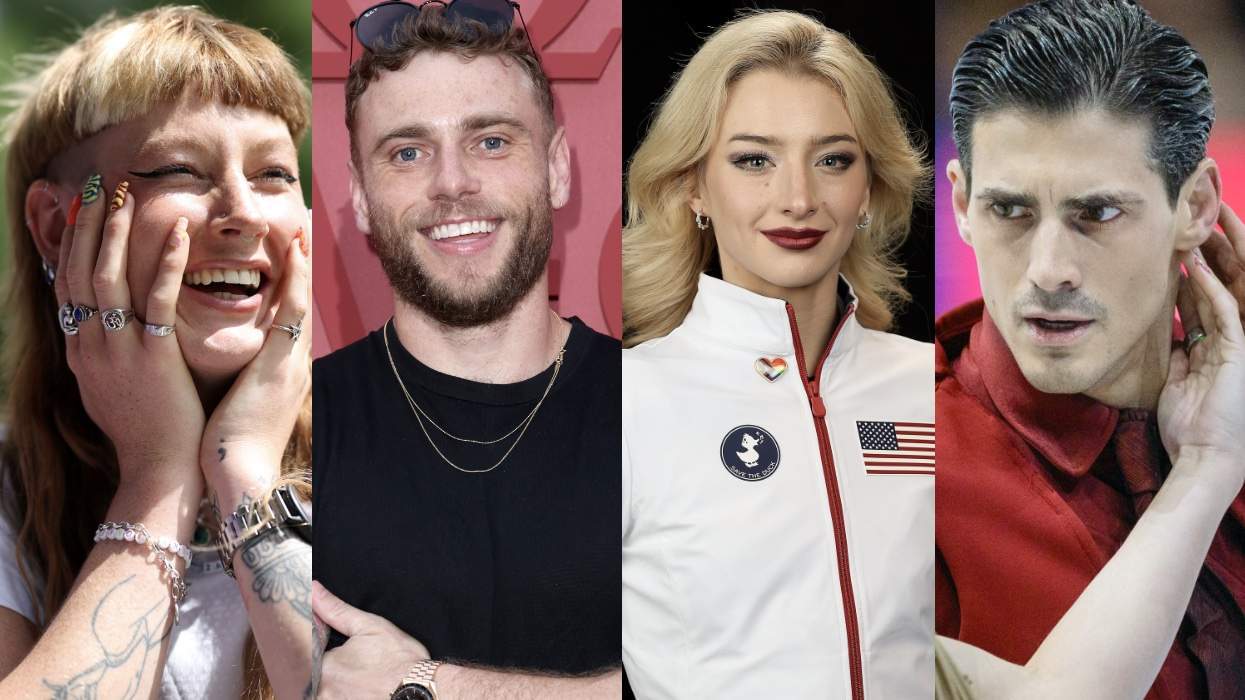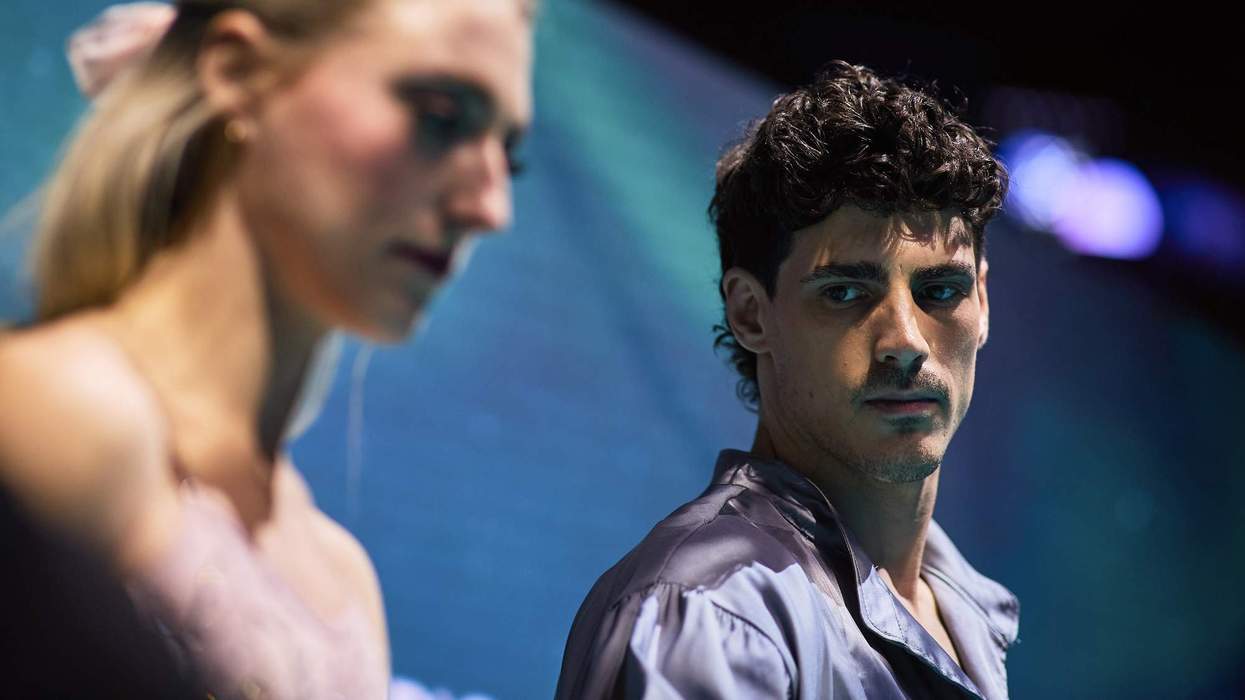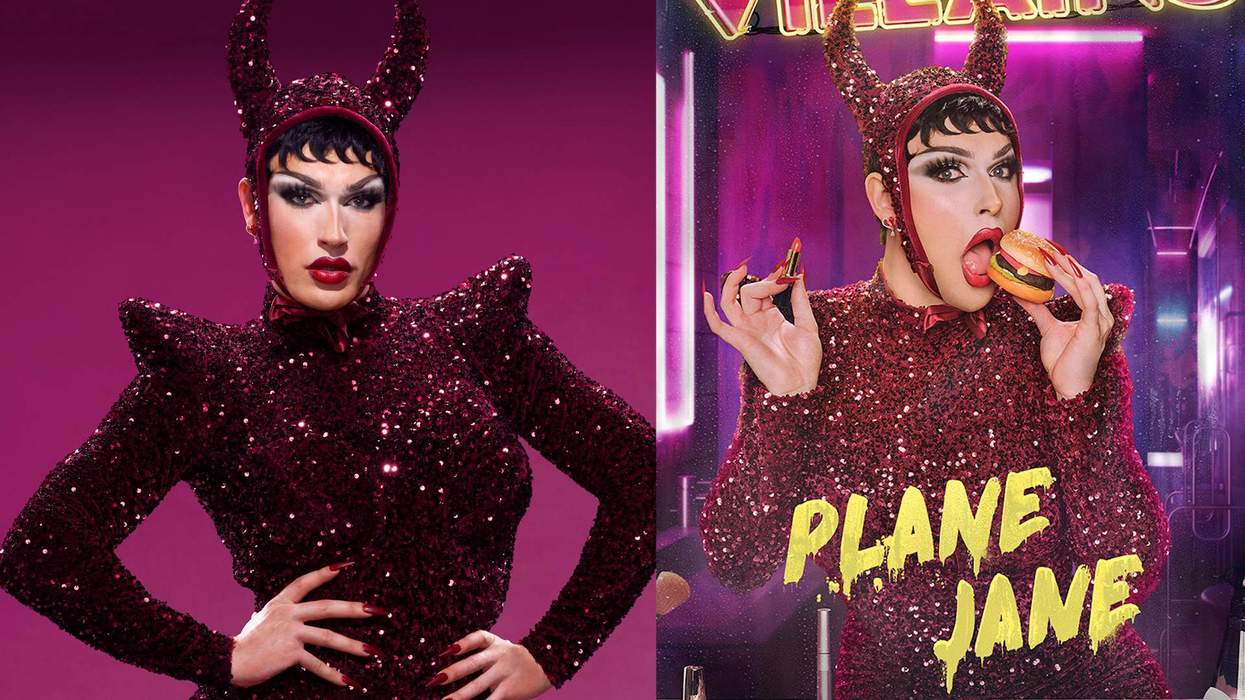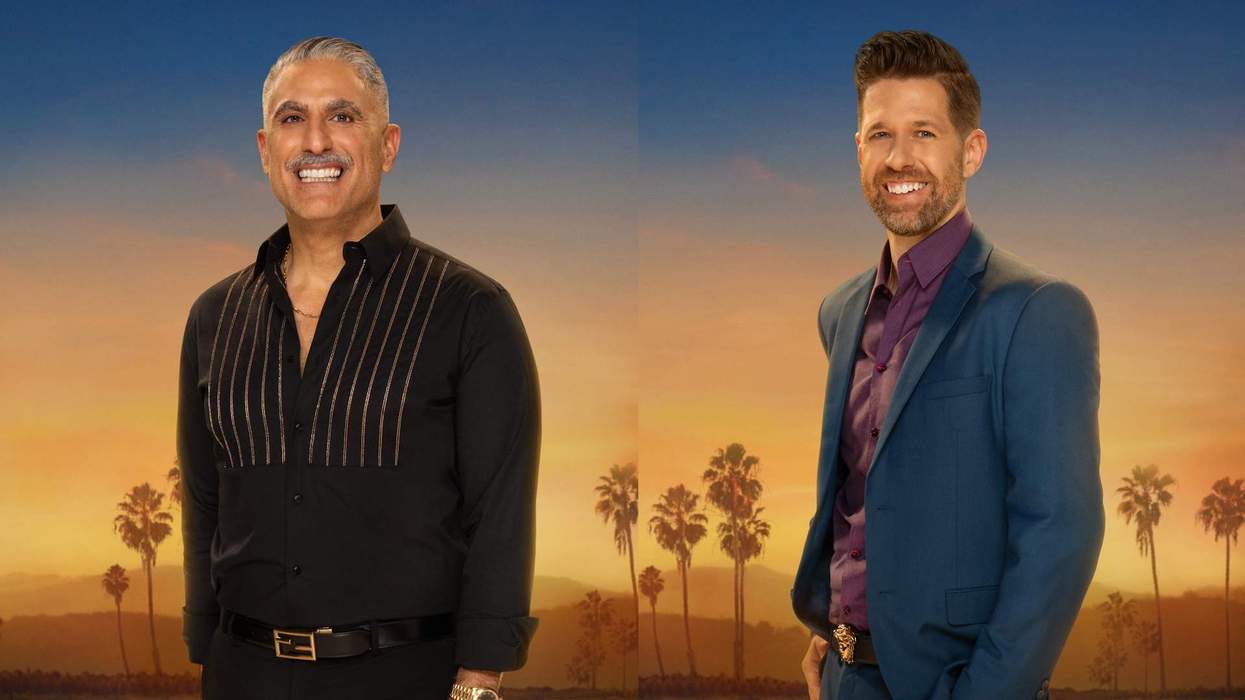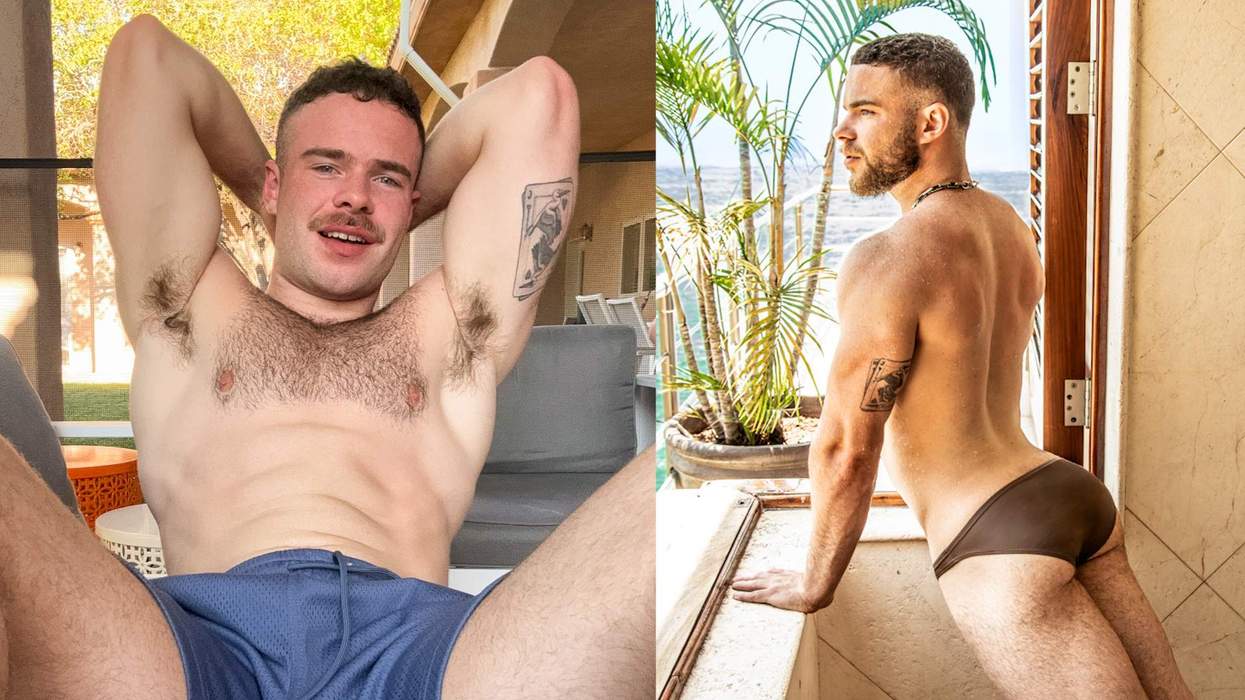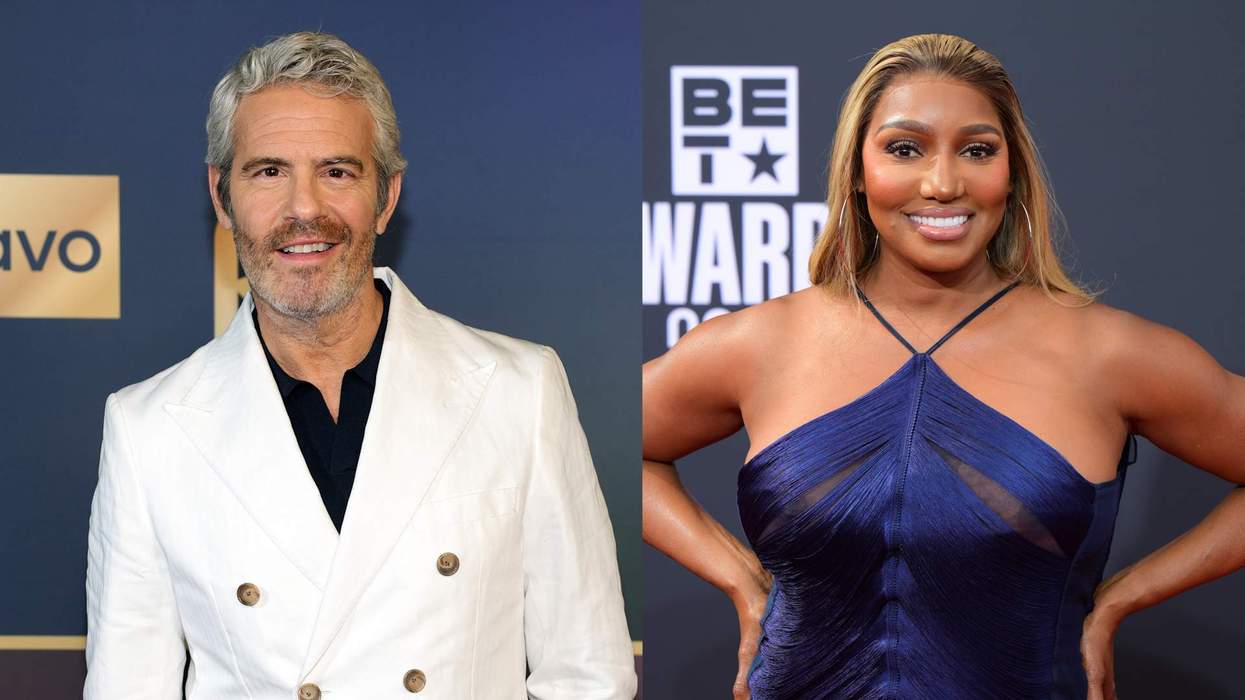It’s hard to imagine a time when trans drag artists and drag kings weren’t front and center in drag competition series. In recent years, many of the most beloved drag artists fall under those categories, but it wasn’t that long ago that both groups were largely sidelined. Not so for the creators of The Boulet Brothers’ Dragula, for whom inclusivity, outsider queens, and pushing boundaries have always been central tenets of their show’s agenda. That’s how this season came to feature not one, but two drag kings — and of course multiple trans and nonbinary drag artists.
This doesn’t happen by accident, as Dracmorda and Swanthula, the wicked duo known collectively as The Boulet Brothers, tell PRIDE — but casting diversely just to do so was also something they intentionally avoided for the sake of the contestants, as well as the competition itself. PRIDE sat down the mavens of the macabre to talk about how they approach the alchemy of bringing together a cast (season five might be their best brew yet), bringing back some beloved familiar monstrous faces, and the impact their show (and the queens who compete on it) have impacted and broadened our idea of drag writ large.

Courtesy of Shudder
The cast this season is incredible, and it’s very diverse. How do you balance reflecting the diversity of the drag community and creating a balanced cast? Tell me about the alchemy that goes into that.
DRACMORDA: It’s about timing. In previous seasons, like when we were casting season four, there weren’t as many developed drag kings that were auditioning, or if there weren’t, they weren’t necessarily in this genre, or if they were in this genre they weren’t good for reality TV for whatever reason.
SWANTHULA: I also think it’s about us personally following our instincts and our intuition. Listening to that and honoring that because it manifests in great ways. The universe is conspiring for us to succeed. We listen to those messages, and we follow them.
D: The right people applied. It’s important for us to not just have diversity represented for the sake of diversity. Meaning I’m not going to just put drag kings on who I know are going to flop. That’s just virtue signaling. I want to put people on the show to have an equal chance of winning. Luckily, this year the people who applied happen to be diverse, but they also happen to be really good at this genre of drag and very capable. This year luck had a lot to do with it.

Courtesy of Shudder
I see what you mean, both Throb Zombie and Jarvis Hammer are absolutely contenders.
D: They’re created for Dragula, literally both of them. You don’t see artists like that a lot. Maybe part of us pushing that diversity on this show helps birth some of these people or helps develop them into the direction of the Dragula genre.
S: Jarvis and Throb are very much powerhouses, we can see that from Meet the Monsters and the trailer, but they’re also incredibly different. They’re complementary colors on the color wheel. Throb is sexy, punk rock, and wild. Jarvis is refined and ghostly, controlled and aristocratic. So it’s really interesting to see this kind of representation — it’s like a niche in a niche in a niche in drag kings on the show.

Speaking of iconic drag kings. This season sees Landon coming back as a recurring judge! How did that come about?
D: I love Landon personally, but he’s always supportive of the brand, always gives back to the brand, always is appreciative of the opportunities that we gave to them, but also focused on their career and continuously developing their career. Landon is just a great example of how to be a successful drag artist. They’re constantly working. They still do tons of local gigs, international gigs, everything so they are a working drag artist. They’ve been doing this for a long time. Their expertise is just out of this world, and I think they’re a perfect candidate to be a recurring judge and want to do more with them in the future, as well.
S: Plus, it’s such a gag. We’ve never done that before. We’ve gotten praise for bringing our returning winners and putting them in a judging position. Because hi, it makes sense. They’ve done this, they’ve fought this battle before, and they know exactly what this feels like. So who would be better to judge them? To have Landon come back more than once I knew, you know, the fans would be freaking and gagging, it just sends wheels sort of spinning.
D: Landon is a very unique character. You want to say, ‘Oh, everyone on Dragula is a big happy family.’ But that’s not always the case. Sometimes people — even winners — get off the season not mature enough to see that the show is going to evolve, or new people are going to get opportunities, or they’re going to be new winners, and they get threatened by it, or they get upset by it. And they’re not always super supportive of everything. So it does take a particular person to have the maturity and the wisdom to say, ‘Hey, I see the opportunity this show gave me. I’m going to continue to pursue my career, I want this show to continue to get bigger, too. And we can all help each other.’ That’s sort of like what we aspire this show to be.
Yeah, I see what you mean. This actually brings me to the other person coming back this season. Tell me a little bit about Koco Caine’s recurring role this season.
D: We crowned Koco as the first Exorsister of Dragula while we were on tour. It was a surprise, she didn’t know it was happening. On the last night of the tour, we decided we wanted to do this because she’s an incredible artist. She was on Titans, she did so well, and she’s just a great example of someone who came on the show in a certain place and left transformed. Even though she was eliminated early in season four, she’d still be on set and she’d come in and work on costumes and stuff. I would see her in there and be like, ‘What are you doing today?’ And she’d be like, ‘Oh, I’m just making this outfit.’ And she would build this incredible giant costume just to have something to do, from scratch! This person is incredible and looks at how they’re growing. So we wanted to do something special with her. We never had a Miss Congeniality on the show before. And so this is what that means for us.
S: She makes multiple appearances in the season as well. She acts as our agent in the laboratory when we’re not there. You’ll see her on camera and a couple of looks running the show a little bit. It’s an empowering role and we were happy to offer that and just watch her take to it so naturally. It sort of expands the mythology of the show and it just feels good all the way around.

Courtesy of Shudder
That makes sense, with you taking on the director role it’s good to have someone to step in as a mentor when you’re behind the camera.
D: You’ll see Israel around when we do fright feats and so Koco also appears in those moments. We’re dipping our toes into expanding the family that you see and the mansion with Landon and Koco returning — Dahli and Victoria [Elizabeth Black] make appearances on the show this season, too.
With so many artists coming up since Dragula first premiered who likely saw the show, I’m curious how you feel like the world of drag — and the way people see drag — has changed since you started doing Dragula?
S: Absolutely. Just based on the direct feedback we’ll get from posts or trailers alone. My favorite comments to see are ones like, ‘Oh my god, this doesn’t even have to do with gender. I don’t even know if I would categorize this as drag. This is crazy and changing the boundaries of what I think drag could be.’ I think we unlock people’s brains and all of these self-imposed barriers. It’s art and no one’s going to tell this painter how to apply their pigments and exactly what they should do. It’s radical self-expression. I feel like we’ve moved the margins of what that means in people’s minds and it’s allowing tons of cool, creative, unexpected perspectives. Not only from the US, China, and South America. It’s just fucking cool.
D: I like to see the old school — I’m not gonna name names — but I’ve seen some like old school Drag Race people get in the mix when the conversation is about Dragula things. Like when Hollow Eve made the [comment about not using the word ‘fish’ to describe female passing anymore], and I’ve seen them [try to defend using it.] Then you see the audience supporting what Hollow said. You all need to update our language here. And with Dahli, they’ll ask, ‘Is that even a drag person?’ And I’m like, ‘Well, you could see them booked all over the world. So, you tell me.’
The proof is in the booking!
D: The definition of drag is evolving. And I think we’re contributing to that. Our competitors are really the ones who are contributing to that.This is the second part of PRIDE’s two-part interview with The Boulets. Click here to read part one of PRIDE’s interview with Swanthula and Dracmorda in which the demonic duo talk directing, why this season is a new chapter, and tease some shocking twists to come.

